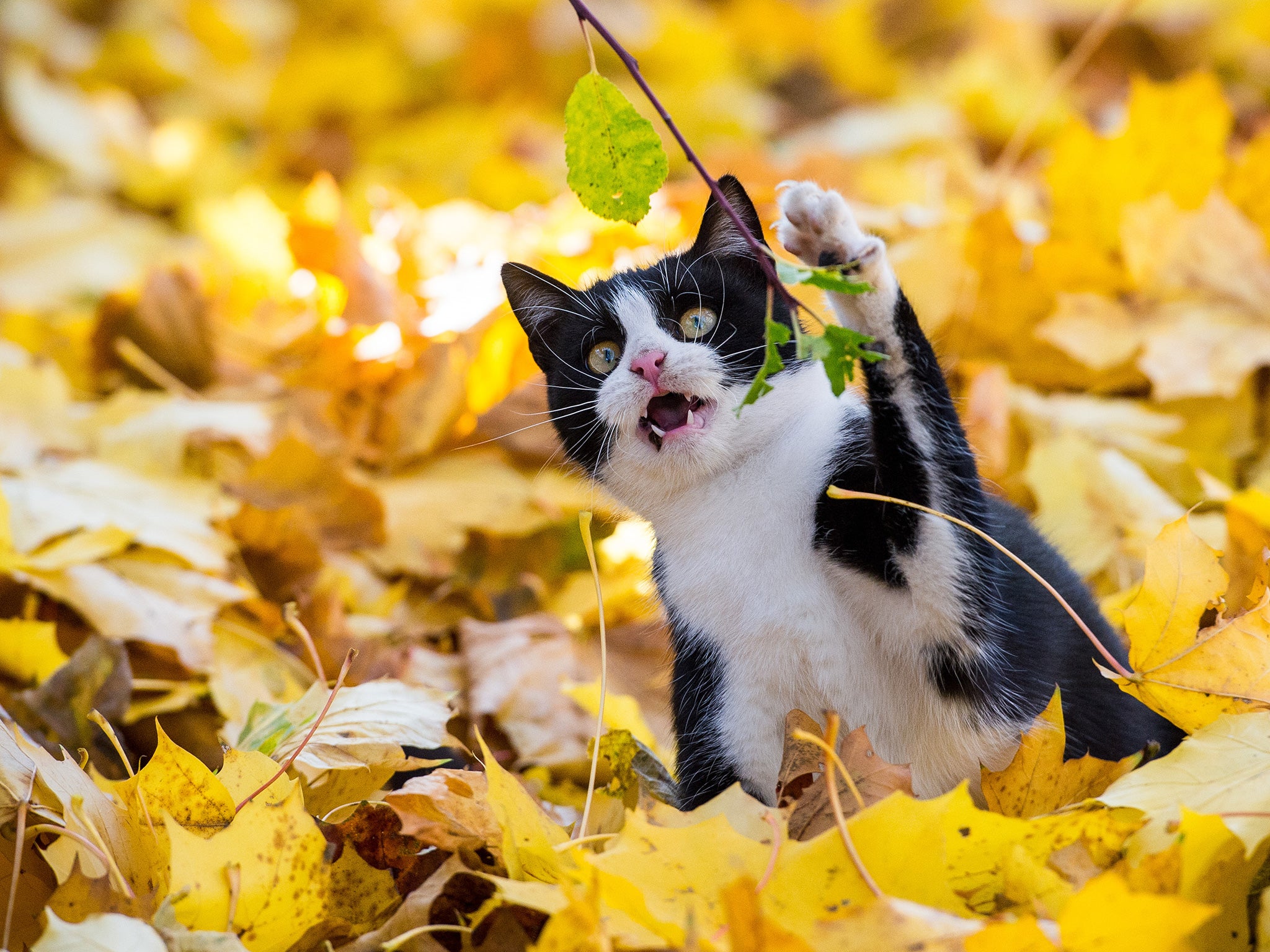Pet cats share neurotic tendencies with zoo lions, say researchers
Characteristics are 'strikingly similar' across the species

Your support helps us to tell the story
From reproductive rights to climate change to Big Tech, The Independent is on the ground when the story is developing. Whether it's investigating the financials of Elon Musk's pro-Trump PAC or producing our latest documentary, 'The A Word', which shines a light on the American women fighting for reproductive rights, we know how important it is to parse out the facts from the messaging.
At such a critical moment in US history, we need reporters on the ground. Your donation allows us to keep sending journalists to speak to both sides of the story.
The Independent is trusted by Americans across the entire political spectrum. And unlike many other quality news outlets, we choose not to lock Americans out of our reporting and analysis with paywalls. We believe quality journalism should be available to everyone, paid for by those who can afford it.
Your support makes all the difference.The cute cat purring on your lap could actually be a neurotic, controlling wreck, according to university researchers – but contrary to some reports they probably don’t want to kill you.
Academics at the University of Edinburgh claim that domestic cats share neurotic personality traits with lions and other larger, wilder felines. The researchers looked at character traits among domestic cats housed in shelters. Working in conjunction with New York’s Bronx zoo, they compared the moggies with captive African lions, snow leopards, clouded leopards and Scottish wildcats.
Characteristics were “strikingly similar” across the species, they found. Domestic cats and lions both showed traits of neuroticism – they were fearful of people, suspicious and insecure. They both also showed “dominance” and “impulsiveness” traits.
Commenting on the study US forensic psychologist Dr Max Watchel, who was not involved in the study, told the BBC that cats are “little aggressive predators” that are “anxious and very non-self assured. They want to be in charge of the house,” he told BBC Radio 5 Live. He added: “They could turn on you at any time.”
But the lead researcher on the Edinburgh study, Marieke Gartner, says there are limits to moggies’ aggression. To suggest your cat actually wants to kill you would be “a pretty far stretch”, Dr Gartner told CNET.
“Cats don’t want to bump you off,” she said. “But people often don’t know how to treat them and then are surprised by their behaviour.”
However, Gartner’s results might have been different if she had studied animals in the wild rather than those in zoos, and cats living in homes rather than those in shelters. The neurotic behavioural traits detected by her team could be a result of the animals’ artificial, captive environment.
“Larger animals are at a disadvantage in captive settings due to the inherently smaller amount of space they have,” the Edinburgh report said. “Similarly, the larger their natural range, the more captivity inhibits them from performing natural behaviours.”
The paper suggested the personality of animals in captivity or conservation programmes could be assessed to help improve their physical and mental wellbeing.
Animal Madness, a book published last year by US science writer Dr Laurel Braitman, contains examples of psychotic behaviours exhibited by captive animals such as Gus, a polar bear that lived in Central Park Zoo, New York.
Gus, who died in 2013, compulsively swam in a figure of eight pattern for up to 12 hours a day and stalked children through the glass in his underwater pool until zoo staff put barriers up. Experts concluded that he was bored and depressed and he was given anti-depressants and a Jacuzzi in his pool in an effort to cheer him up.
The book also features sobbing gorillas, pacing lions, compulsively masturbating walruses and a female gorilla at Bronx zoo who plucked out all her hair until she looked like a “wizened old human woman” and was deemed too disturbing for public view.
Join our commenting forum
Join thought-provoking conversations, follow other Independent readers and see their replies
Comments